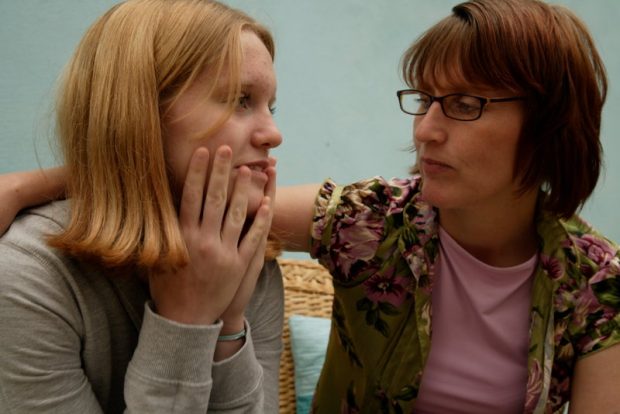
Let's talk some numbers. Domestic abuse claims the lives of 2 women a week. There are an estimated 6.5 million adults who have suffered domestic abuse. And police in England recorded 421,000 domestic abuse crimes last year.
What that means is there aren’t many people who don’t know a friend, relative or acquaintance who has suffered from domestic abuse. The difficult truth is that domestic abuse is a persistent and widespread problem in England.
Faced with these overwhelming numbers, you might be forgiven for having a fatalistic view of domestic abuse.
Can-do attitude
Fortunately, agencies in 6 areas we recently inspected didn't view domestic abuse in that way. We found a can-do attitude among the police, health professionals, social workers, youth offending teams and probation services in Bradford, Hampshire, Hounslow, Lincolnshire, Salford and Wiltshire.
Our inspectors took a thorough look at how these agencies responded to cases of domestic abuse, with a focus on those involving children. And they found a lot of good work that was helping victims.
One of the best ways to deal with domestic abuse is at the very beginning – before a child is even born. That’s where midwives come in. In 5 of the 6 areas inspected, we found that midwives are asking pregnant women the right questions so they can help them early.
Midwives
There are good reasons why midwives get involved. For about a third of victims, domestic abuse begins during pregnancy.
It’s not easy to determine precisely how many children are suffering domestic abuse. But research shows that 62 per cent of children who live with families affected by domestic abuse suffer physical harm themselves.
In areas that deal with this risk best, police, midwives and social workers and other professionals all talk to each other and share what they know. Inspectors found they are used to dealing intelligently with protocols and refuse to let any myths about data sharing get in the way of doing the right thing.
Professional judgement
More importantly, leaders encourage their teams to trust their own professional judgement.
Less positively, inspectors also saw instances of professionals failing to make connections between what seemed like isolated incidents, but were in fact consistent patterns of behaviour.
And inspectors identified another failing in some areas. Namely, a lack of focus on the child. In these cases, police, health professionals, social workers and other professionals tended to focus on the main victim - usually, but not always, the mother. As a result, they did not always fully consider the impact of the abuse on her children.
Completely changed
What happens to those children? Well, in the words of one survivor, their whole life is completely changed.
“We are the ones who have to leave our homes, leave our families. We are the ones that have to change our lives completely and everything we do every day. We have to come and live in a house with other people. Your whole life is completely changed.”
For a child, moving from a broken home to a refuge and a new school can be traumatic. That’s where schools have to go that extra mile.
Domestic abuse may be endemic, but there is nothing inevitable about it. In fact, cases of domestic abuse have fallen from a peak in 1993.
Prevent, protect and repair
To up our game, all professionals need to remember - prevent, protect and repair. Ensuring the long term needs of children and victims are responded to as well as the immediate protection of children and victims has got to be at the heart of our thinking.
Our report published today finds that there is much good work to protect children and victims. But there’s far too little when it comes to preventing domestic abuse and repairing the damage that comes with it.
We need to challenge some of our current thinking and ensure we are focusing on the right things to make the biggest difference. We need to know more about what works.
Agencies can address these complex challenges but due to the endemic nature of domestic abuse they cannot do it alone. Education is crucial. A widespread public service message is needed to shift behaviour on a wide scale.
2 comments
Comment by Louise posted on
I agree with all of the above, but what about children who are suffering parental alienation? The family courts do not recognise this as abuse so it is not treated seriously. There are millions of fathers and paternal families denied rights in seeing their children/grandchildren/nieces/nephew with no law to protect or support them. The law is heavily weighted towards mothers and fathers are mostly second class citizens in parenting. I am absolutely all for supporting children who witness/experience domestic abuse but please look at the effects on fathers who are denied rights to see their children. I have first hand experience of a mother alledging domestic abuse simply to gain legal aid. She was believed and it was up to the father to prove her allegations false which he did. However, it took 6 months in family court to do this in which time his children were turned against him. There was no consequences for the mother even though she was proved to be lying. Please ensure there is support for men in these circumstances too so children are not used as pawns. I am female by the way!
Comment by Anonymous posted on
I agree domestic violence can start during pregnancy, my partner became violent and kicked in the locked toilet door. The midwife didn't talk to me about domestic violence and this might have helped.